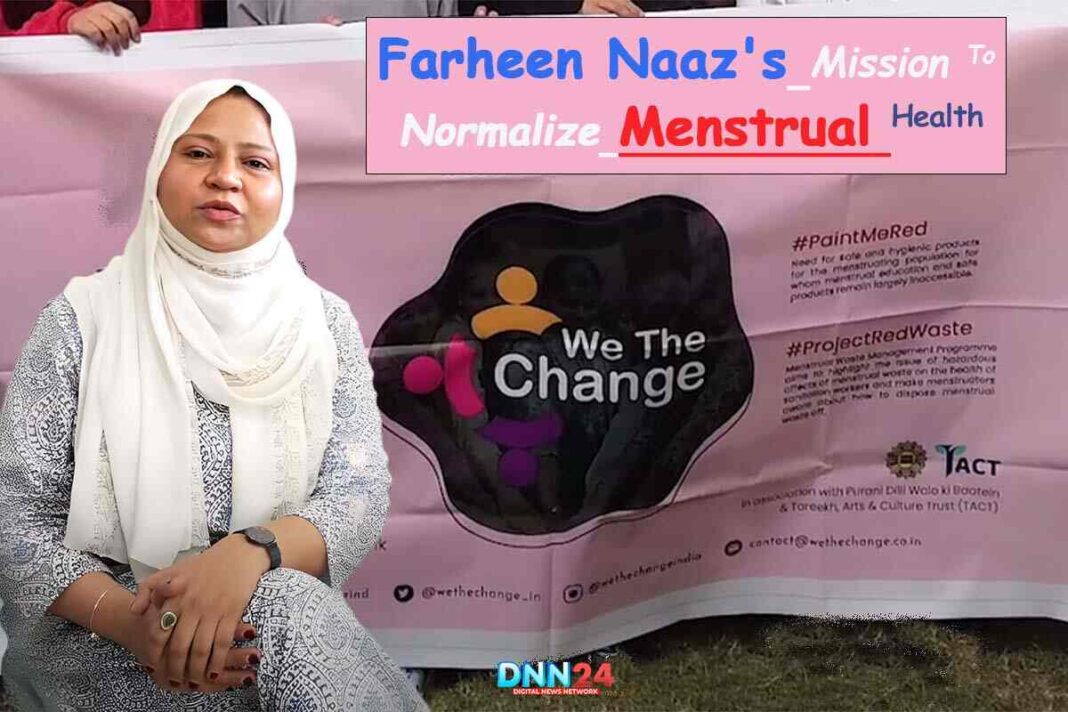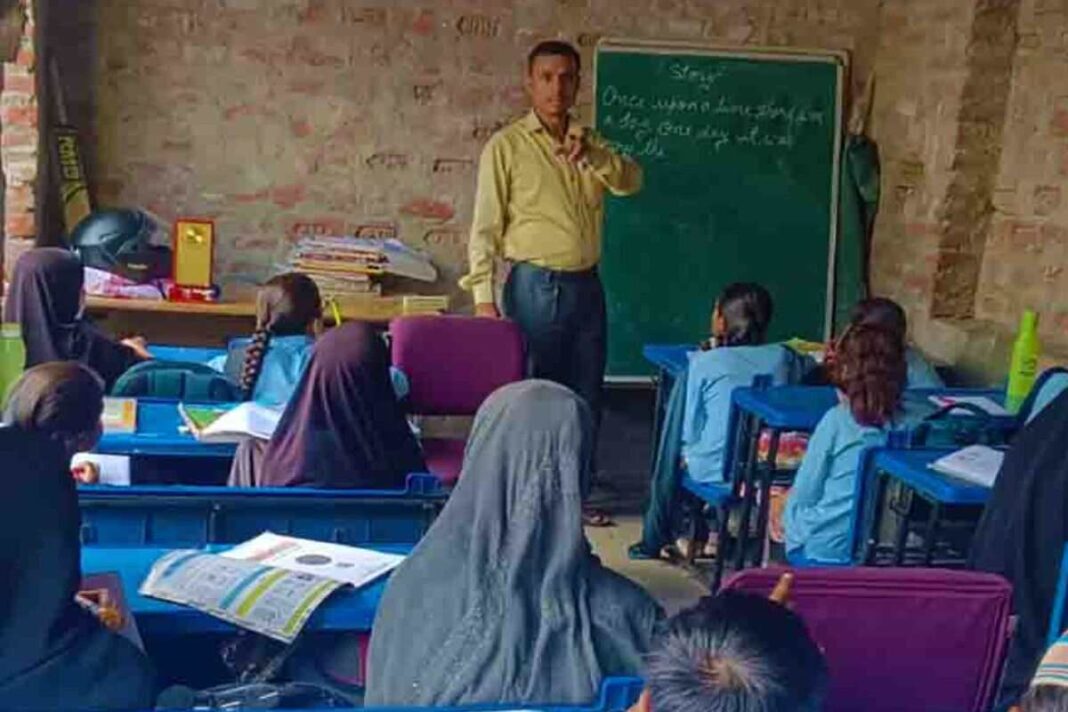Farheen Naaz’s journey began with her first period experience. On the first day of a 10-day holiday, she woke up to find blood in her urine. Frightened, she ran to her mother, who gave her a cloth pad and a list of restrictions: no playing, no jumping, no lying on the bed, no cycling, and no going near her brother or father. This sudden change in how she was allowed to interact with her family was a shock for Farheen. She was also told not to eat sour foods or pickles, which she loved. These cultural beliefs passed down through generations left Farheen with many questions.
Breaking the Silence in Schools
In school, Farheen noticed that even teachers were uncomfortable discussing reproductive health. The chapter on the reproductive system was skipped, with students told to study it at home and write answers to questions. This lack of open discussion about such an important topic sparked Farheen’s interest in finding answers to her questions.
The Birth of We the change
During the second wave of COVID-19 in India, Farheen and her team were distributing food rations to those in need. A woman approached her asking for an extra sanitary pad, saying, “Everyone is distributing food, but no one is giving out sanitary pads. If we don’t have money for food, how can we buy pads?” This encounter was a turning point for Farheen. She realised that while many people were helping with food, menstrual hygiene products were often overlooked as essential items. This led to the creation of We The change, an organisation dedicated to distributing menstrual hygiene kits and educating people about menstrual health.
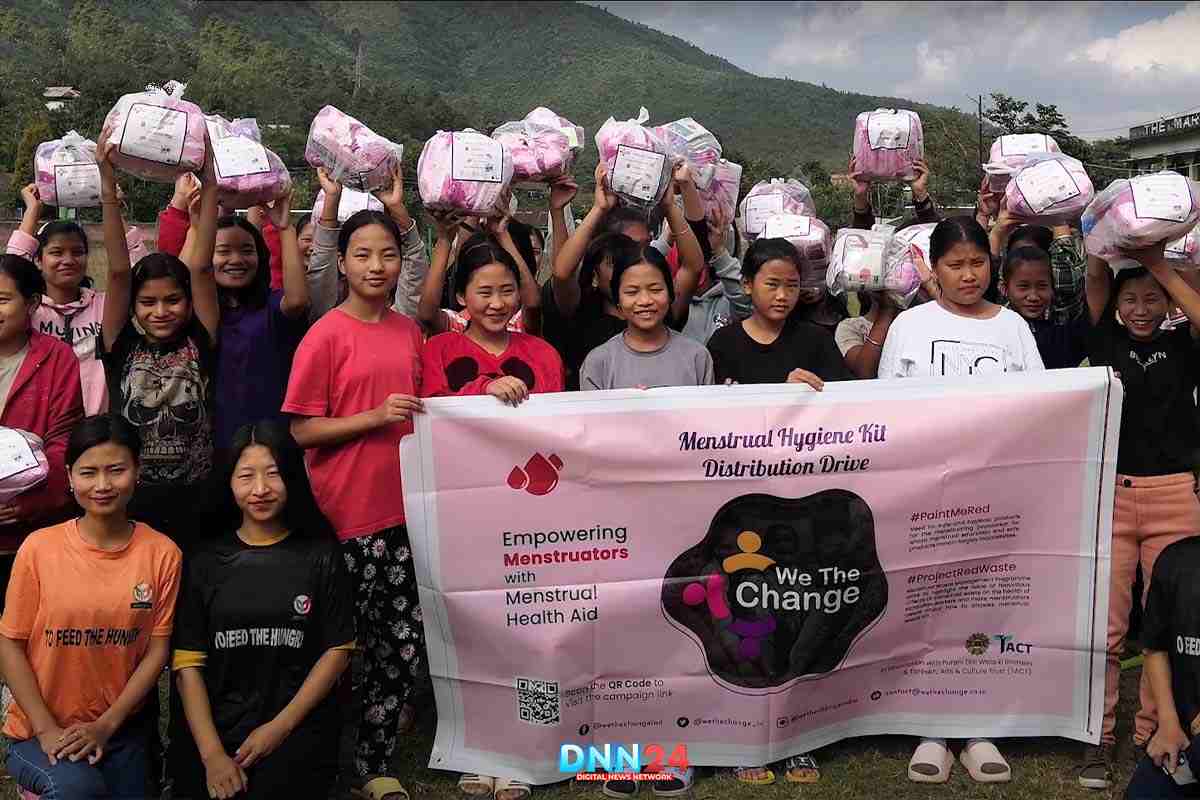
Reaching the Unreached
We The change’s work has taken them to some of the most remote parts of India. In Manipur, they connected with a nurse who now leads their efforts in the Northeast. She shared that in many tribal communities, sanitary pads were completely new. About 80% of the women they reached had never seen a sanitary pad before. Some women were using makeshift pads filled with ash, sand, wood shavings, or dried leaves. The discomfort and health risks associated with these practices were eye-opening for Farheen and strengthened her resolve to bring change.
Educating Beyond Menstruation
We The change doesn’t just focus on menstrual health. They also provide comprehensive sex education, recognizing its importance in addressing issues like high rates of HIV and teenage pregnancies in some areas. In a village near the India-Myanmar border, Farheen conducted sessions with about 250 students from five schools. She was surprised by the students’ openness and knowledge. When asked what word came to mind when they heard “period,” one boy said “protection,” and another mentioned “menstrual cup.” This level of awareness in a remote village showed Farheen that change was possible and happening.
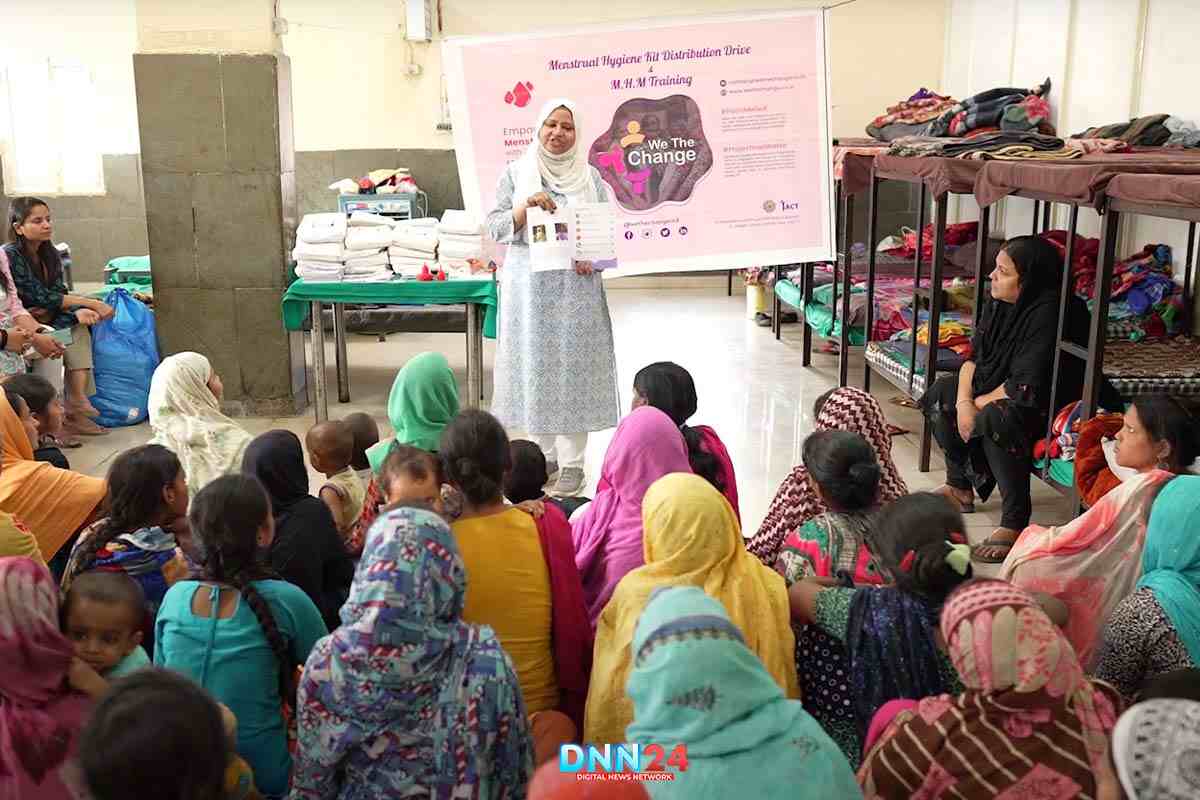
Overcoming Challenges
Farheen’s journey hasn’t been easy. She faced resistance from relatives who thought talking about menstruation was shameful. Some of her sessions were cancelled because communities weren’t ready to discuss these topics. Funding was also a major challenge, as We The change was a new organisation. Despite these obstacles, Farheen persevered, driven by her passion to make a difference.
A Vision for the Future
We The Change has already reached 18,000 people across 15 states in India. Farheen’s vision extends beyond India – she aims to take menstrual health education global. The organisation is now focusing on expanding its reach in South India and welcomes volunteers from all regions.
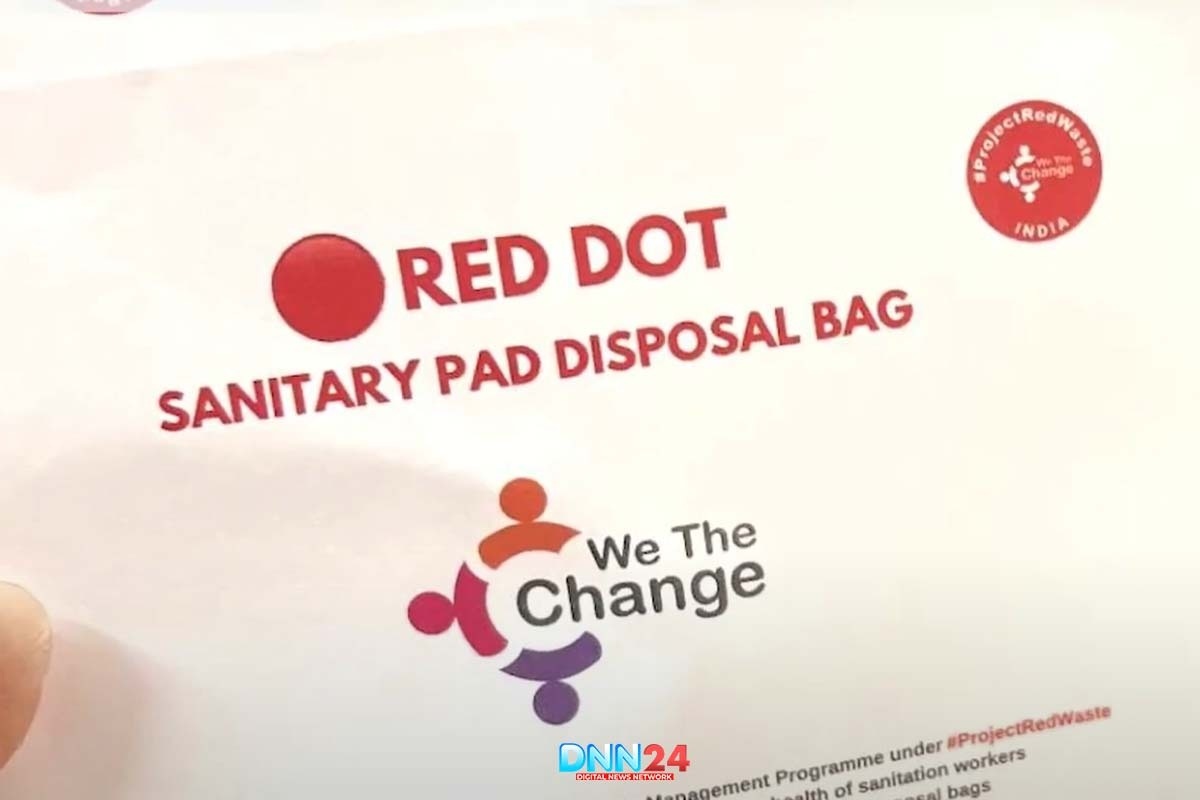
Farheen Naaz’s story is one of courage, determination, and the power of education. Through We The Change, she is breaking down taboos, one conversation at a time. Her work reminds us that change begins with open dialogue and understanding. By normalising discussions about menstrual health, Farheen is not just improving hygiene practices but also challenging deep-rooted social norms.The impact of We The Change is evident in the women and girls they reach. Many express gratitude for finally understanding their bodies and learning proper menstrual hygiene. This knowledge empowers them to take better care of their health and challenge harmful practices.
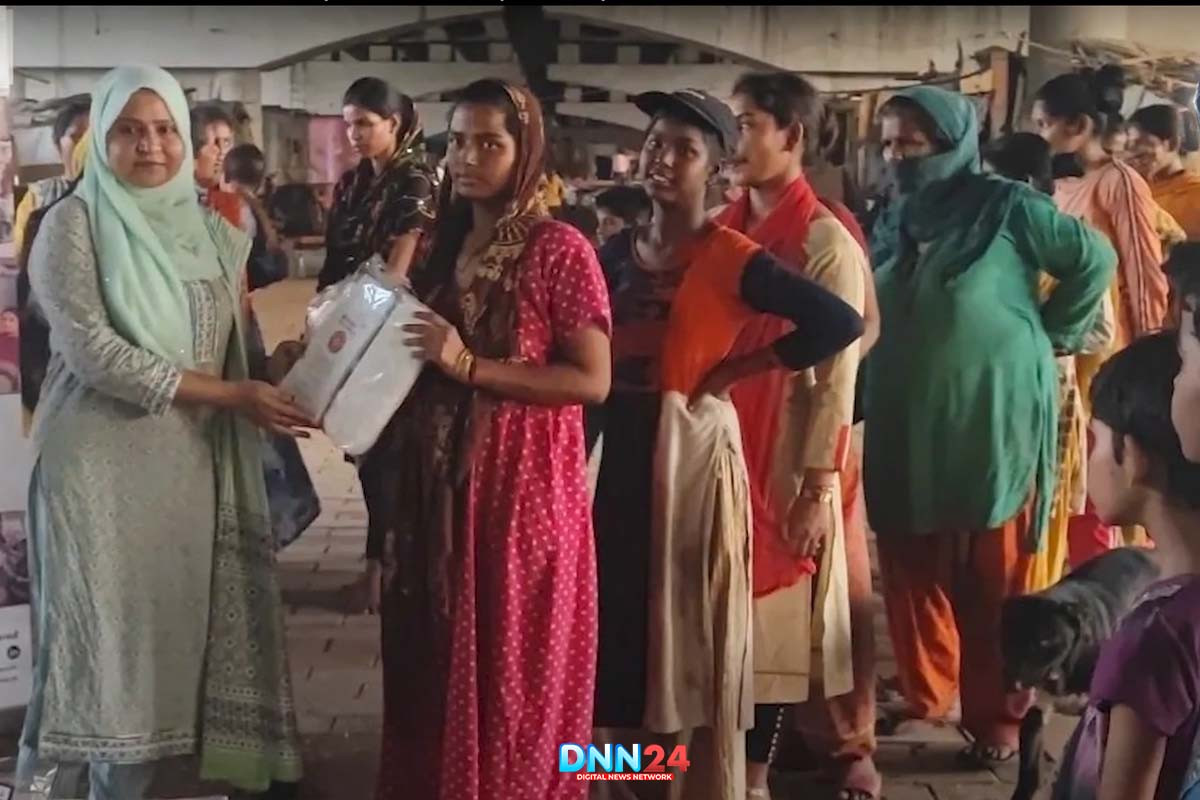
Farheen’s approach goes beyond simply distributing sanitary products. She educates women about different options like menstrual cups, teaching them how to determine the right size and use them safely. This not only provides a more sustainable option but also helps women become more comfortable with their bodies. The organisation’s work in schools is particularly crucial. By providing accurate information to young people, We The Change is helping to create a generation that is more informed and open about menstrual health. This early education can lead to long-term changes in attitudes and practices.
Farheen’s efforts also highlight the importance of involving men in menstrual health discussions. By breaking the silence around periods, she’s helping to create a more supportive environment for women and girls.The challenges Farheen faces – from societal resistance to funding issues – are significant. However, her perseverance and the growing support for her work show that there is a strong desire for change in Indian society.
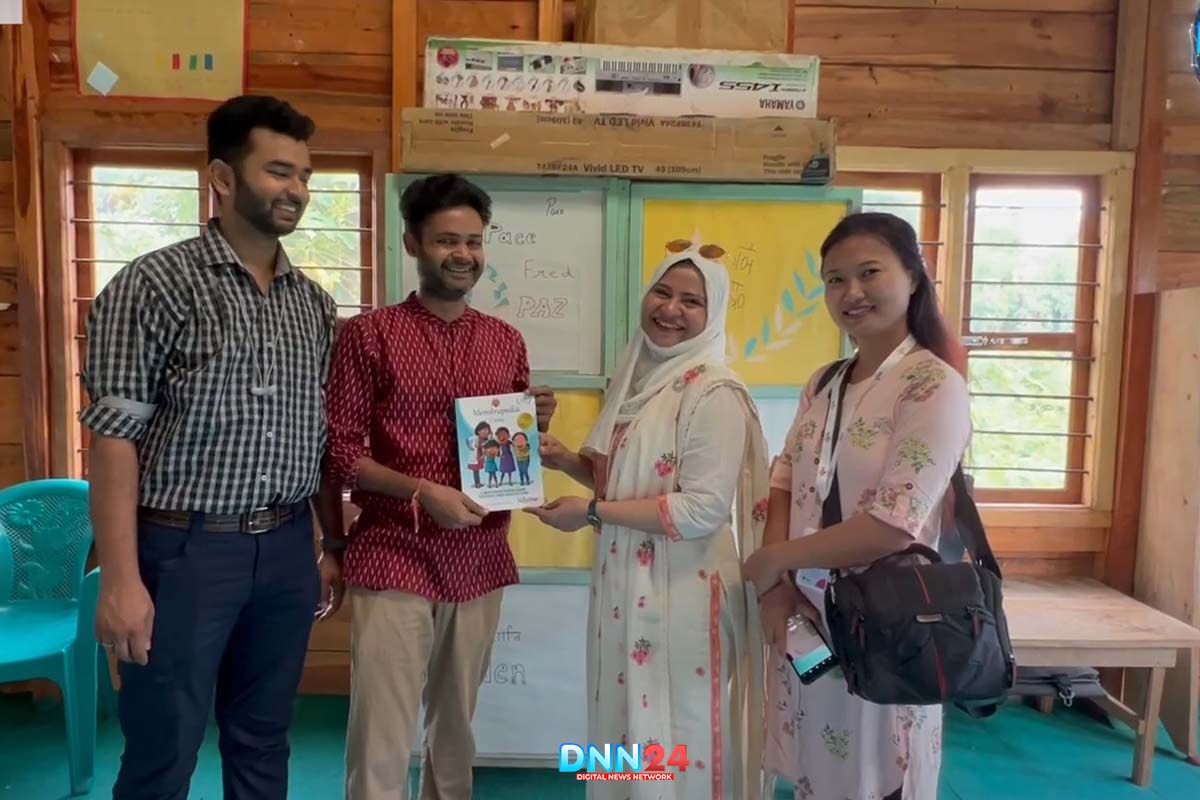
We The Change’s focus on tailoring their approach to different communities is crucial. By addressing specific concerns like HIV and teenage pregnancy in areas where these are prevalent, they ensure their work is relevant and impactful.Farheen’s story is inspiring not just because of what she’s achieved, but because of how she’s achieved it. She turned her own confusion and frustration into a force for positive change. Her work shows that with determination and the right approach, even deeply ingrained taboos can be challenged and changed.
As We The Change continues to grow, its potential impact is enormous. By improving menstrual health knowledge and practices, they’re not just addressing a health issue, but also contributing to broader goals of gender equality and women’s empowerment.Farheen Naaz and We The Change remind us that change often starts with simple conversations. By being willing to discuss topics that many consider taboo, they’re paving the way for a healthier, more open society. Their work encourages all of us to question harmful practices and to seek out accurate information about our bodies and health.
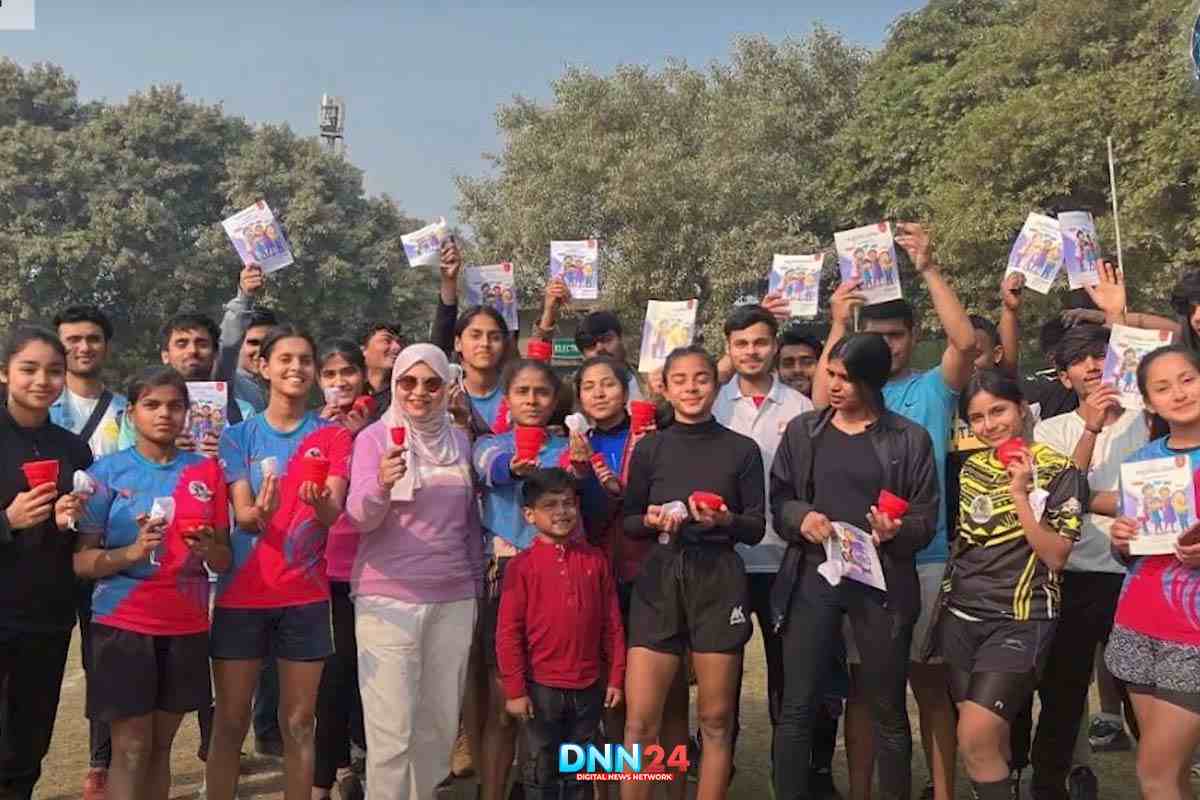
Farheen Naaz’s journey with We The Change is a powerful example of how personal experiences can lead to social change. Her work is breaking down barriers, challenging stereotypes, and improving health outcomes for women and girls across India. As she continues her mission to normalize menstrual health discussions globally, Farheen Naaz stands as an inspiration to all who seek to make a positive difference in their communities.
You can connect with DNN24 on Facebook, Twitter, and Instagram and subscribe to our YouTube channel.

